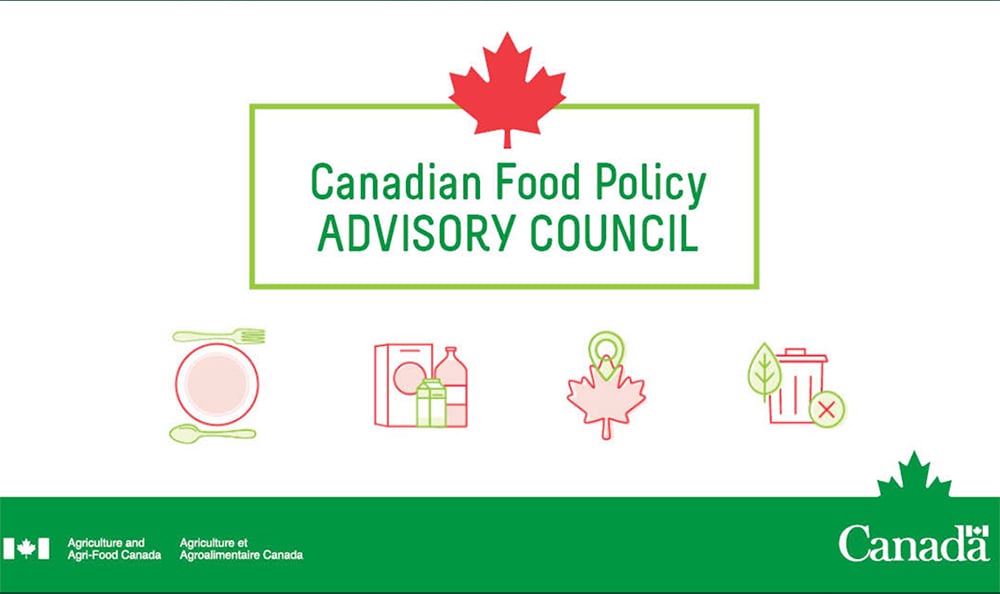Canada’s Food policy development is taking a major step forward. An advisory committee featuring industry, academic, and government members tasked with guiding the policy was announced on Feb. 19.
Public consultations for a Food Policy for Canada started in 2017, resulting in the release of a report from Agriculture Canada highlighting what was heard in 2018.
In 2019, the government dedicated around $134 million to support the policy’s development and the creation of a national food system.
There are four pillars of the policy:
- helping Canadian communities access healthy food
- making Canadian food the top choice at home and abroad
- supporting food security in northern and Indigenous communities
- reducing food waste
Read Also

Using artificial intelligence in agriculture starts with the right data
Good data is critical as the agriculture sector increasingly adopts new AI technology to drive efficiency, sustainability and trust across all levels of the value chain.
According to the federal government, the advisory council will report to Minister of Agriculture Marie-Claude Bibeau and “bring together the expertise and diversity within the food system to address both the challenges of today and the future.”
In total, 23 members were announced to the committee, which will meet virtually for the first time on March 4.
Among the members are Mary Robinson, the president of the Canadian Federation of Agriculture, and Evan Fraser, director of the University of Guelph’s Arrell Food Institute.
Fraser in particular is expected to be a leading voice on the committee. He was one of the first in Canada to propose the federal government create such a council and maintains a respected voice within the sector.
The policy objective is significant, and once it is fully implemented, will have a dramatic impact on agriculture and agri-food across Canada.
“The policy is a roadmap for a healthier and more sustainable food system in Canada,” said Bibeau during the announcement of the committee. “The policy brings everyone across our food system together to deliver real, long lasting change.”
Some funding for projects related to those projects is already taking place.
For example, a Food Waste Reduction Challenge was launched in November 2019, awarding up to $10.8 million to innovators who prevent or reduce food waste “at any point from farm-to-plate.”
Additional challenges are expected to be announced later this spring.
In addition to aiding in the implementation of the policy, Bibeau said the committee will also help shape Canada’s policy position at the upcoming United Nations Food Systems Summit.
Planned for October, the Summit, according to the UN, is expected to “launch bold new actions to transform the way the world produces and consumes food, delivering progress on all 17 Sustainable Development Goals.”
Advisory committee members include: Jean-François Archambault, La Tablée des Chefs, Quebec; Sylvie Cloutier, Quebec Food Processing Council; Heather Deck, registered dietitian, Saskatchewan; Julie Dickson Olmstead, Save-On-Foods; Evan Fraser, University of Guelph; Sonny Gray, North Star Agriculture Inc., Yukon; Marcel Groleau, Union des producteurs agricoles, Quebec; Christopher Hatch, Food Banks Canada; Lynda Kuhn, Maple Leaf Foods; Elizabeth Kwan, Canadian Labour Congress; Dr. Joseph LeBlanc, Northern Ontario School of Medicine; Catherine L. Mah, Dalhousie University; Larry McIntosh, Peak of the Market, Manitoba; Rosie Mensah, FoodShare, Ontario; Lorie Nikkel, Second Harvest, Ontario; Denise Philippe, National Zero Waste Council; Melana Roberts, City of Toronto’s Black Food Sovereignty Plan; Mary Robinson, Canadian Federation of Agriculture; Brenda Schoepp, food researcher and former farmer, British Columbia; Wendy Smith, St. Joseph’s Health System, Ontario; Avni Soma, Bow Valley Food Alliance, Alberta; Connor Williamson, farmer and food system researcher, British Columbia; and Gisele Yasmeen, Food Secure Canada and University of British Columbia.
















